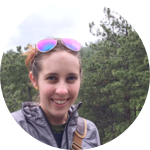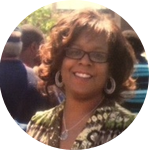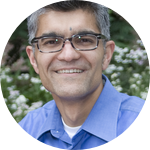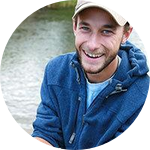About This Project
The harmful effects of indoor air contaminants, such as perchloroethylene (PERC), are clear. Knowing how to assess our own risk is less clear. We will assemble and distribute air quality test kits to homes in Northeast Denver in order to collect data on two pollutants: PERC and radon. Our goals are simple, help a local community understand if they are at risk, raise awareness of air quality issues, and test a low-cost method for PERC detection that could allow anyone to screen their home.
Ask the Scientists
Join The DiscussionWhat is the context of this research?
PERC and Radon are gases that can enter people's homes from the soil or groundwater; long term exposure to either is unhealthy. PERC is a solvent used in dry cleaning and when spilled it can travel and linger for years. After several spills were discovered nearby, we decided to collect data in our own neighborhoods. Radon, in contrast, occurs naturally in the soil throughout much of Colorado.
We will compare a high-cost, proven method for PERC detection to a cheaper, easier method. To ensure results are both scientifically valid and practically useful, our project is led by scientists and community leaders. Participants will learn about PERC and radon in their homes and ways to protect themselves; the community can use aggregated data to identify spills or pollution 'hotspots'.
What is the significance of this project?
The majority of our time is spent indoors, which makes long-term exposure to even low-levels of air pollution a health concern. PERC and radon are toxic and carcinogenic. Radon is typically considered the second leading cause of lung cancer and Colorado falls in the "highest potential for radon" category due to its geologic conditions.
Testing and validating a low-cost screening method for PERC in homes could be valuable to researchers, communities, and even regulators all over the world. Increased testing for radon might lead to more remediation and improved local health. Additionally, utilizing a community-based participatory research model to engage residents will result in valuable information, methods, and resources for future community-based scientific research projects.
What are the goals of the project?
We will assemble air quality kits to collect data on PERC and radon levels. We will test 15 homes over the course of three weeks. Field data will reveal PERC levels in the homes and help us to determine whether or not there may be a neighborhood-wide problem. Radon data could highlight hotspots or other homes that are the most 'at-risk'.
We hope to use this data to identify issues and suggest changes that would improve health throughout the community. Our goal is to begin answering residents' questions regarding the presence of pollutants; more sampling or assistance with remediation may follow this project.
Field data and further laboratory tests will compare the low-cost PERC detection method to an accepted method. If successful, an additional goal is to publish and share this method.
Budget
Sampling Equipment: We need sampling equipment for both PERC tests as well as certified radon tests. The bulk of the cost is for the high-quality PERC tests that are analyzed according to EPA methods.
Coordinator Reimbursement: We need to hire 3 dedicated coordinators from within the community to manage resident-collected data and ensure data quality.
Organizational Costs: A big portion of the success is determined by community participation. This funding will go towards advertising and holding a public lecture event and helping us recruit our goal of 15 participants for the study. This will also support our broader goal of educating the larger community.
***Thanks to the generosity of AGU's Thriving Earth Exchange donations will be matched up to $2000!
Meet the Team
Affiliates
Team Bio
Ashley Collier works in an air quality lab; her work includes using low-cost technologies for research and education/outreach.
George Ware is the Chair of Taking Neighborhood Health to Heart. A former evaluator of STI/HIV prevention programs in Colorado, he now facilitates the engagement of neighborhood residents in creating healthy communities using principles of community-based participatory research.
Patti Iwasaki has her MSW from the University of Denver and finished her Ph.D. coursework at UCD in Health & Behavioral Sciences. For the last 10 years she has worked with TNH2H doing CBPR in communities of color, disseminating and popularizing data with communities!
LaShonn Billingsley is a graduate student at Capella University working towards a Masters in Human Services. She has been a resident in the TNH2H footprint for over 30 years and serves on the Steering and DRAD Committees. She loves her community and the work that we do as an organization to improve the health and well being of our residents.
Debbi Main is a Professor at the University of Colorado Denver and a research partner and member of Taking Neighborhood Health to Heart since its beginning.
Rajul (Raj) Pandya is the director of AGU's Thriving Earth Exchange, which connects scientists, communities, and sponsors and helps them work together to develop solutions that have local impact and global implications.
Brian Fauver is a graduate student at Colorado State University studying citizen science and economics.
Ashley M. Collier
I began working with my air quality research group (headed by Dr. Michael Hannigan) 4 years ago. I love the work I do and I am excited to share my passion for air quality research through education/outreach, and by helping others find ways to go about investigating their air quality questions
Debbi Main
I am a Professor in the Department of Health and Behavioral Sciences, University of Colorado Denver and also hold an appointment at the Anschutz Medical Campus, University of Colorado. My primary research interest involves using community-based participatory research to understand and address social determinants of health and health inequities in diverse urban neighborhoods and rural towns in Colorado.
Additional Information
Project Partners
Through this exciting project we are not only taking on a community's question regarding their health and local environment, but we are also testing methods that might be useful to scientists and communities across the globe. This project would not be possible without the efforts of all our partners...
Taking Neighborhood Health to Heart, a Denver-based community–driven organization that uses participatory research to ensure healthy neighborhoods and solve challenges
The American Geophysical Union's Thriving Earth Exchange, which is committed to sharing this projects' results and methods in order to advance solutions science and promote collaboration between AGU's 60,000 member scientists and local communitites.
Feel free to contact me, Ashley, directly: ashley.collier@colorado.edu
Project Backers
- 35Backers
- 100%Funded
- $4,250Total Donations
- $61.23Average Donation






